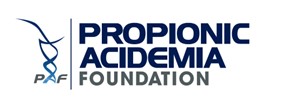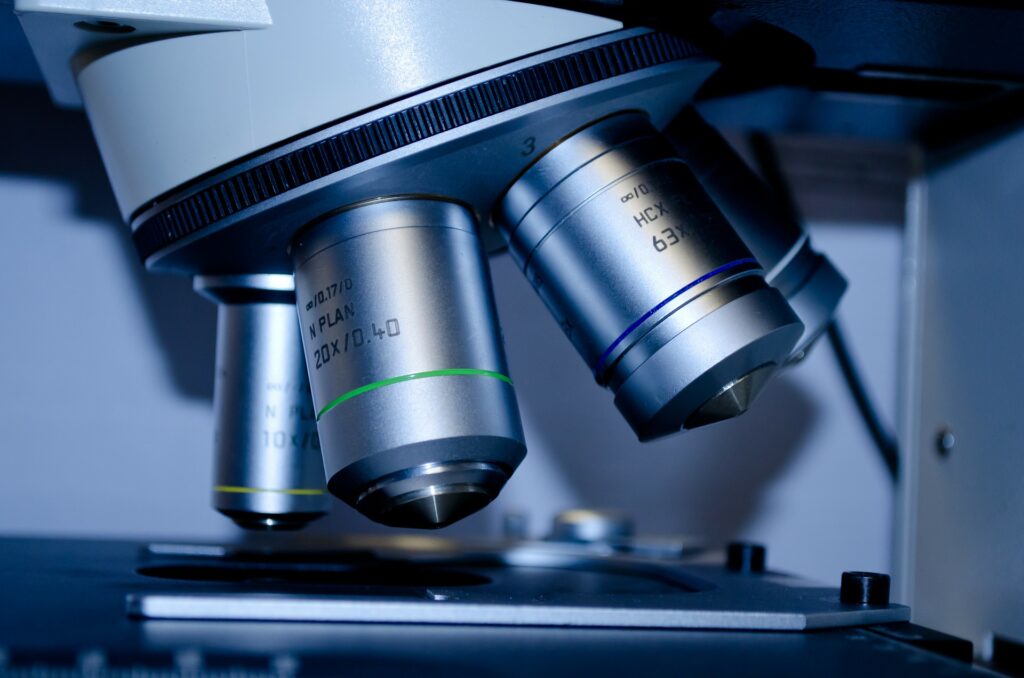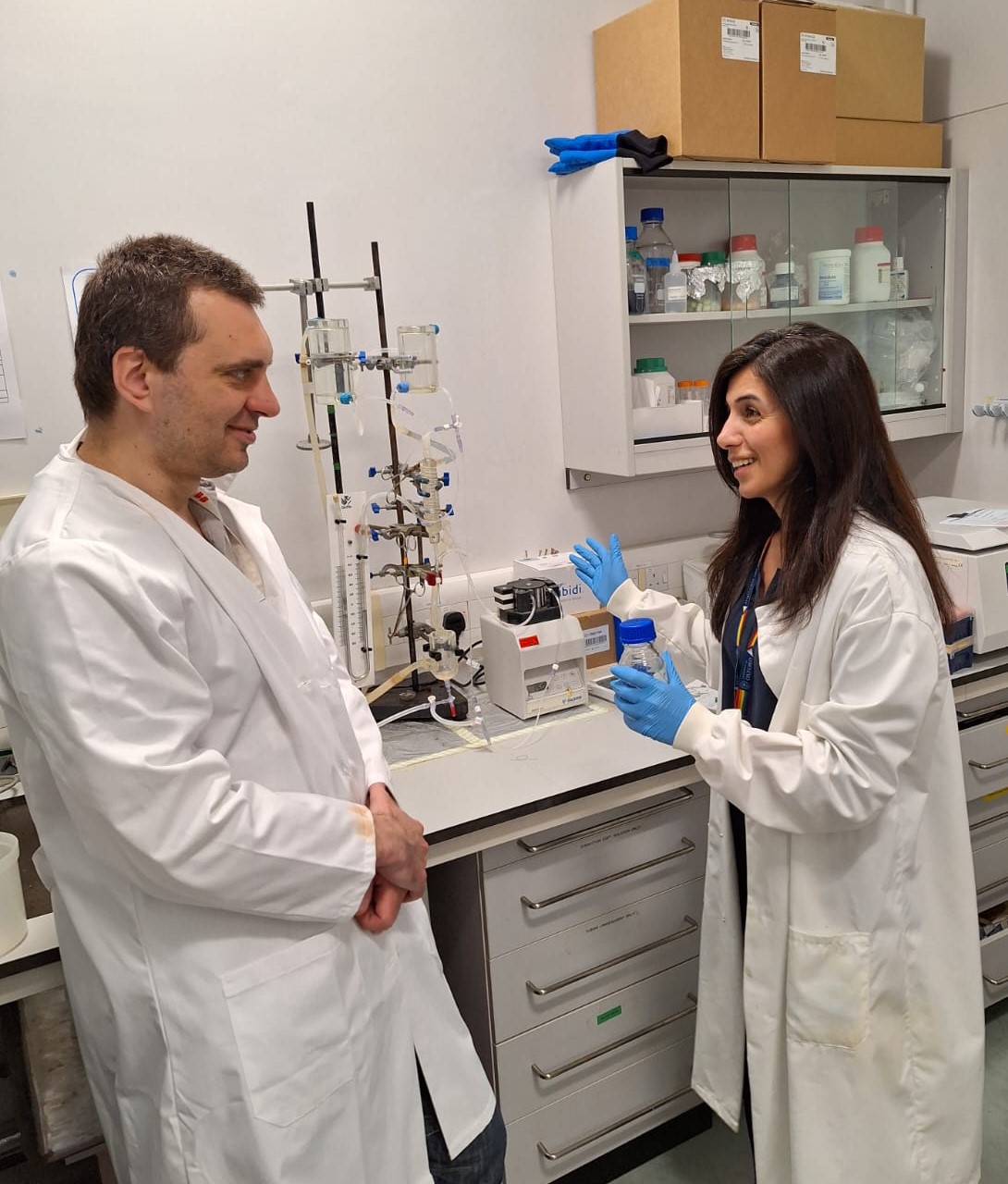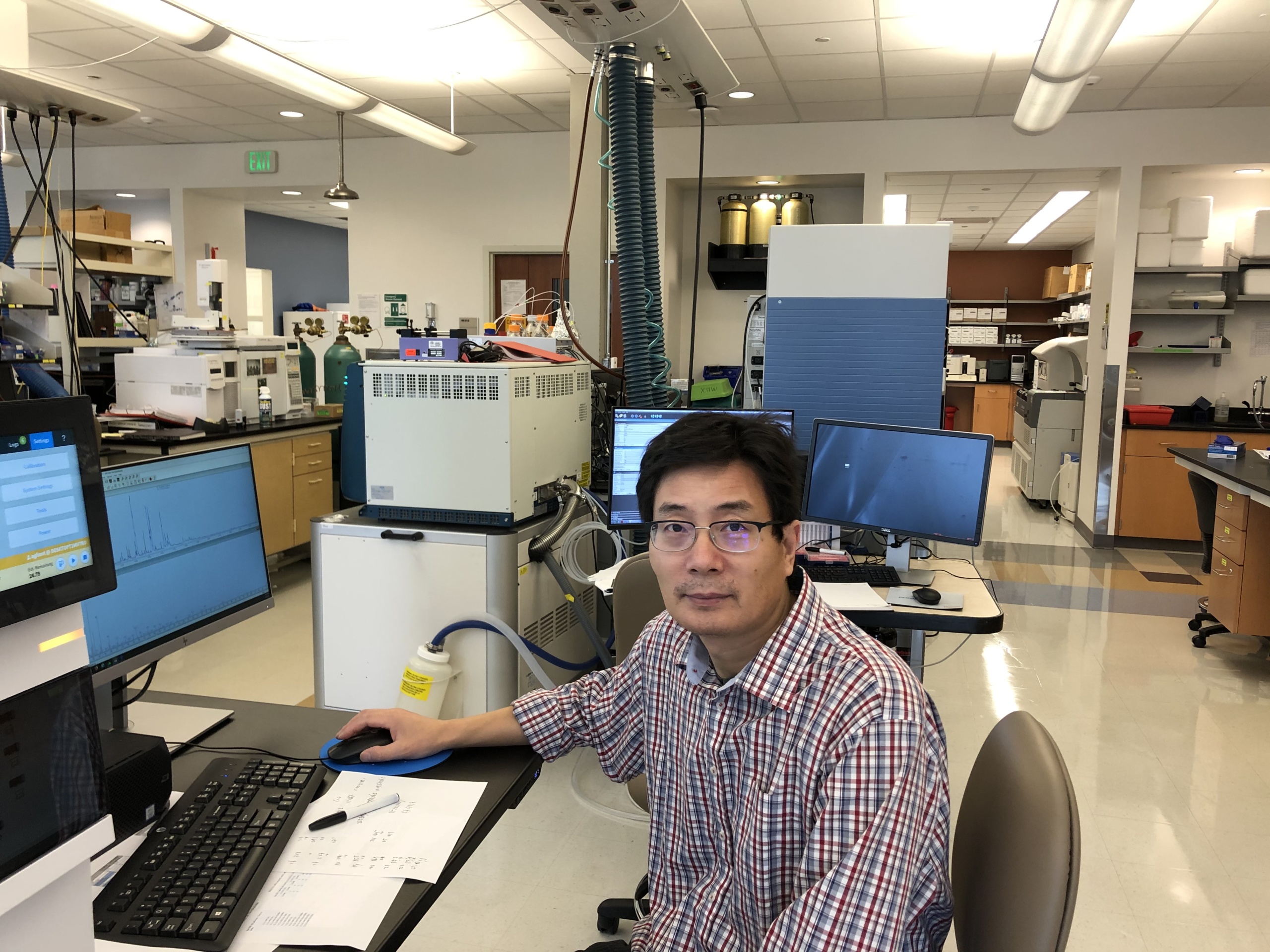PROPIONIC ACIDEMIA FOUNDATION CURRENTLY FUNDED RESEARCH
PREVIOUSLY FUNDED RESEARCH BY PAF
PI: Eva Richard, Associate Professor Universidad Autónoma de Madrid, Spain
PI: Eva Delpon, Professor Universidad Complutense de Madrid, Spain
“Elucidation of cardiac electrophysiological alterations in propionic acidemia: Towards the identification of targets for therapeutics”
PI: Grant Mitchell, MD CHU Saint-Justine, Montreal, Canada
“New approaches to understanding and treating propionic acidemia”
In Spring 2024, PAF awarded a $50,000 Initial Research Grant for 4/1/24-3/31/25
PI: Ken Maclean, PhD, University of Colorado Denver
“Chemical Chaperone Treatment to Restore Enzyme Activity in Folding Mutations of Propionyl-Co-A Carboxylase: Towards a Personalized Therapeutic Strategy in Propionic Acidemia (PA)” – In Summer 2020, PAF awarded a $50,000 grant. In Spring 2022, PAF awarded a $50,000 continuation grant. No cost extension through 12/31/23.
PI: Rajavel Elango, PhD, University of British Columbia
“Optimizing amino acids in medical foods to manage propionic acidemia” – In Spring 2020, PAF awarded a $44,253 grant. A no cost extension was granted through June 30, 2022.
PI: Pawel Swietach, Professor of Physiology, Department of Physiology, Anatomy & Genetics, University of Oxford, England
“Aberrant protein propionylation and distinct histone marks in propionic acidemia: new disease mechanisms and risk factors for cardiac disease” In Spring 2021, PAF awarded $49,953 Initial Research Grant.
PI: Sander Houten, Ph.D., Department of Genetics and Genomic Sciences, Icahn Institute for Data Science and Genomic Technology, Icahn School of Medicine at Mount Sinai, NY, US
Co-PI: Robert J. DeVita, Ph.D., Department of Pharmacological Sciences, Drug Discovery Institute, Icahn School of Medicine at Mount Sinai, NY, US
“Substrate reduction as a novel therapeutic strategy for propionic acidemia” In Spring 2021, PAF awarded $50,000 Initial Research Grant
PI: Eva Richard, PhD, Universidad Autonoma de Madrid, Spain
“Cardiomyocytes derived from induced pluripotent stem cells as a new model for therapy development in propionic acidemia” – In Spring 2019, PAF awarded a $33,082.12 grant. In Spring 2020, PAF awarded a continuation grant for $30,591 See 4 publications below.
- Summary of Project and Updates
- Generation and characterization of a human iPSC line (UAM004-A) from a patient with propionic acidemia due to defects in the PCCB gene
- Cardiac Complications of Propionic and Other Inherited Organic Acidemias
- Cardiomyocytes Derived from Induced Pluripotent Stem Cells as a Disease Model for Propionic Acidemia
Co-PIs: Oleg Shchelochkov, M.D. and Charles P. Venditti MD, PhD, National Human Genome Research Institute, National Institutes of Health, Bethesda, MD
“Diversion of Isoleucine and Valine Oxidative Pathway to Reduce the Propionogenic Load in Propionic Acidemia.” – 2018, PAF awarded a $32,912 grant.
PI: Hilary Vernon, MD, PhD, Johns Hopkins University
“Targeting Serine and Thiol Metabolism in Propionic Acidemia” – In July 2017, PAF awarded a $43,645 grant. In the research project, entitled “Targeting Serine and Thiol Metabolism in Propionic Acidemia”, we will define the role of novel pathways of cellular dysfunction in Propionic Acidemia. It has been known for several decades that the genetic cause of Propionic Acidemia is an abnormality in one of the genes encoding for propionyl-CoA carboxylase, leading to accumulation of propionic acid and it’s metabolites. However there is still a limited understanding of how this causes cellular dysfunction.
In our preliminary work, we defined novel differences in the way that cells affected with Propionic Acidemia produce defenses against oxidative stress, and in the way that these cells utilize serine, a central amino acid for cellular growth. In this current research project, we will use a new cell model of propionyl-CoA carboxylase deficiency developed in our laboratory to fully define these pathway differences, and how they alter the response to stress. We hope that in defining these new pathways of cellular dysfunction in Propionic Acidemia, we will offer new areas for potential therapeutic intervention and therapeutic monitoring. We are excited to begin this research, and are grateful to the Propionic Acidemia Foundation for funding this research.
- Grant Update as seen in the Fall 2018 Newsletter
- Multi-omics studies in cellular models of methylmalonic acidemia and propionic acidemia reveal dysregulation of serine metabolism.
PI: Nicola Brunetti-Pierri, MD, Fondazione Telethon, Italy
“Novel Therapies for Propionic Acidemia” – In June 2017, PAF awarded a $50,000 grant. Propionic acidemia (PA) is an inborn error of metabolism caused by deficiency of propionyl-CoA carboxylase (PCC). There is no cure for PA and available therapies are often unsatisfactory. Elective liver transplantation is being increasingly used to reduce metabolic crises and temper some of the most severe symptoms of the disease. However, liver transplantation is invasive, has high morbidity, and requires long-term immunosuppression. Therefore, more effective and safer therapies for PA are highly needed. We generated a PA model in the medaka fish (Oryzias latipes) that recapitulate the pathological and biochemical abnormalities observed in human patients, and has reduced locomotor activity and survival. As disease model, the fish has several advantages including easy handling, low costs, large number of progeny per generation, a relatively short generation time, and a small and well-draft genome. We propose to perform a high-throughput drug screening in this animal model using the reliable and clinically relevant endpoint of locomotor activity as first-tier read-out. Positive hits will be confirmed for their effect on biochemical abnormalities and survival.
PI: Jan P. Kraus, Ph.D. University of Colorado at Denver and Health Sciences Center, (UCDHSC) Denver, Colorado.
“Enzyme Replacement Therapy for Propionic Acidemia” – In August 2011, PAF awarded a $32,000 grant. A continuation grant for $28,898 was awarded for January 1, 2013- June 30, 2016. The main objective of this project is to develop a therapeutic treatment of PA by enzyme replacement therapy.
PI: Loren Pena, M.D., PhD. Duke University
PAF awards a $21,200 Grant to Dr. Loren Pena on her study titled: “A prospective study of biochemical parameters reflective of metabolic control in propionic acidemia” in January 2013. In March, 2014 PAF awarded a $28,697 grant. In February, 2015 PAF awarded an additional $18,159 grant for year 3 of the study. Study completed February 2017.
- March 2015 Update on “Laboratory parameters reflective of metabolic control in propionic acidemia.”
- March 2015 Update on “A prospective study of biochemical parameters reflective of metabolic control in propionic acidemia. “
PI: Michael A. Barry, Ph.D, Mayo Clinic College of Medicine
PAF awards $39,572 Grant to Dr. Barry for his study titled: “Neurologic Phenotypes and Therapy in Propionic Acidemia Mice.”
- Fall Newsletter update on Dr. Barry’s research
- See below for more articles and information on past research by Dr. Barry
PI: Andrea Gropman, M.D., FAAP, FACMG, FAAN Children’s National Medical Center, Washington, D.C.
“Biomarkers for Neurological Injury in PA” – In January 2012, PAF awarded a $27,000 grant. If you have Propionic acidemia and are between the ages of 6-40 years, you may be able to participate in an MRI study at Children’s National Medical Center and Georgetown University. Unspent funds of $26,940 returned August 2019 due to difficulty in recruitment.
PI: Kimberly Chapman, M.D. Ph.D and Kristina Cusmano-Ozog, M.D., Children’s National Medical Center, Washington, D.C.
“Is there energy deficiency in Propionic Acidemia”. In January 2012, PAF awarded a $15,500 grant.
- Gene expression in cell lines from propionic acidemia patients, carrier parents, and controls.
PI: Marisa Cotrina, Ph.D. University of Rochester, Rochester, NY
“The impact of pa on brain astrocytes: an in vitro model to test mitochondrial therapy in PA” In January 2012, PAF awarded a $27,000 grant. In March 2013, PAF awarded a $27,000 continuation grant.
PI: Holmes Morton, MD. Clinic for Special Children, Strasburg, PA“The Biochemical Basis fo Keto-Acidemia, Encephalopathy, Metabolic Strokes, Heart Failure & Long QTc, and a Discussion of Current Therapies” -In September 2012, PAF awarded a $5000 grant for the workshop held on September 14, 2012.
PI: Jan P. Kraus, Ph.D. University of Colorado at Denver and Health Sciences Center,(UCDHSC) Denver, Colorado.”Genotype-phenotype correlations in Propionic Acidemia” – In July 2008, PAF awarded Dr. Kraus a $40,000 grant. In July 2009, PAF awarded a continuation grant of 40,000. In October, 2010, PAF awarded a continuation grant of $28,000.
- Research Studies in PA – Dr. Kraus Update – 11/2011
- Mutation analysis in 54 propionic acidemia patients. 10/2011
“Crystallization and structure determination of human propionyl-CoA carboxylase” – In March 2008, PAF awarded Dr. Kraus a $30,000 grant. In May 2009, PAF awarded Dr. Kraus an extension grant of $30,000 to continue his study. In May 2010, PAF awarded Dr. Kraus an extension grant of $30,000.
“This project deals with the three dimensional structure of the enzyme using crystallization and X-ray diffraction. Why is this important? Solving the structure of the enzyme is essential for at least two reasons: first, the structure would allow prediction of the impact of each mutation on the function onf the enzyme; second, any meaningful design of treatment drugs should be based on the enzyme’s structure. We are working on this project in collaboration with Dr. Vivien Yee who is an expert crystallographer and is based at the Case Western University in Cincinnati.” – update Dr. Kraus 10/2010
PI: Michael Barry, PhD, Mayo Clinic Rochester
“Feasibility of translating gene therapy for propionyl CoA carboxylase (PCCA) deficiency”
In September 2009, PAF awarded Dr. Barry a $20,000 grant to which begins a new chapter in designing an adenoviral gene therapy for PA to be used in clinical trials in the future. Dr. Barry’s project will include expanding the number and types of PA mice for use in the adenoviral (Ad5) therapy. Specifically he will be generating new transgenic mice bearing patient PCCA mutations to compare to the PA mouse model previously designed by Dr. Miyazaki. One goal will be to extend the lifespan of the new PCCA mutant mice. A second goal will be to determine how much genetic correction will be needed to do this. The amount of PCC activity necessary for extending the lifespan and reducing symptoms of PA in mice is currently unknown, so this will be determined from both human and mouse cell lines as well as analyzing whole mice. Dr. Kraus at The University of Colorado School of Medicine will participate in the PCC analysis of the cell lines.
- Long-term Sex-Biased Correction of Circulating Propionic Acidemia Disease Markers by Adeno-Associated Virus Vectors.
- Effects of Adeno-Associated Virus Serotype and Tissue-Specific Expression on Circulating Biomarkers of Propionic Acidemia.
- Generation of a Hypomorphic Model of Propionic Acidemia Amenable to Gene Therapy Testing.
- Adeno-associated virus serotype 8 (AAV8) Gene Transfer Rescues a Neonatal Lethal Murine Model of Propionic Acidemia
PI: Kimberly Chapman, MD, Ph.D., Children’s Hospital of Philadelphia.
“Gene Expression Profiles of Patients with Propionic Acidemia and their Carrier Parents”
In May 2009, PAF Awarded Dr. Chapman a $29,381 grant to study how the blockage of PCC (propionyl CoA carboxylase, the enzyme that is missing or deficient in PA patients), affects other genes in the body. Dr. Chapman’s study is unique in that she will be looking at how a single gene malfunction like mutated PCCA or PCCB may influence other genes across the entire human genome to malfunction. Hers is the first research project that will take advantage of the newly formed PA Cell and DNA Repository at Coriell Institute for Medical Research. Dr. Chapman will use patient samples obtained from Coriell to compare RNA expression levels of PA patients and also their carrier parents. The data she generates may shed new light on why certain secondary complications are prone to develop in PA’s, and will hopefully improve our understanding of how the whole body reacts when PCC is not functioning properly. The results showed that over 300 of these genes respond differently to low glucose in individuals with PA than in individuals without PA. This is the first study of its kind to look at a clinical significance for PA carrier parents.
- Chapman Study Update in Autumn 2010 Newsletter, Page 2.
- Poster presented at 2011 SIMD Annual Meeting.
PI: Jan P. Kraus, Ph.D. University of Colorado at Denver and Health Sciences Center,(UCDHSC) Aurora, Colorado. Grant 3/1/2006- 2/29/2008
“Therapeutic Approaches to Propionic Acidemia”
In 2006, PAF awarded Dr. Kraus a grant for $25,000 for his studies with chaperone proteins. An additional $30,000 was awarded in 2007. The enzyme propionyl-CoA carboxylase (PCC) is deficient in pathogenic cases of propionic acidemia. PCC is constructed from alpha and beta subunits encoded by the genes PCCA and PCCB respectively. To produce a functional enzyme the subunits must be assembled and folded into the correct conformation inside the body. Some mutant forms of PCC tend to aggregate or fold incorrectly resulting in inactive enzymes in some PA patients. Previous work has shown that when some misfolded mutant PCCs are expressed in the presence of the molecular chaperone proteins GroES and GroEL significant levels of PCC activity are produced. Treatment of this class of PCC mutants with chemical chaperones also restored PCC activity. This indicates that in a subclass of PCC mutations, the defect lies in the impaired folding or assembly of the enzyme rather than in its production. Dr. Kraus is currently treating specific PCC mutants in E. coli and in fibroblasts with molecular and chemical chaperones to identify mutants that may respond in vivo. If increased production of PCC is demonstrated, this work has the potential to open the doors to a new treatment strategy for some PA patients.
- August 2006 Progress Update as seen in the PAF Newsletter
- Kraus Lab
- List of PCCA Mutations
- List of PCCB Mutations
PI: Jon Wolff, University of Wisconsin Madison, Wisconsin
“Muscle directed gene therapy for Propionic Acidemia”
In 2007, PAF awarded Dr. Wolff a $30,000 grant. More information is available in the April 2007 newsletter. July 2008 Update
PI: Dr. Michael Barry, Ph.D. Mayo Clinic, Rochester, MN
“Gene Therapy for Propionyl CoA Carboxylase Deficiency”
Preclinical studies by Dr. Miyazaki and liver transplantation in PA patients suggest that correction of the defective genes of PCC in the liver can temper some of the metabolic problems due to the disease. Based on this, Dr. Michael Barry is testing the feasibility of performing liver-directed gene therapy using adenoviral and adeno-associated virus gene delivery vectors using PA mice constructed by Dr. Miyazaki. Work is underway to determine if these liver-directed approaches can mitigate the metabolic defects in the mice and how long the genetic correction will last. While at Baylor College of Medicine, Dr. Barry’s project was funded $58,489.04. (2004-2006) An additional $25,000 was awarded to Dr. Barry for 1/1/2007-12/31/2007 to continue his studies at Mayo Clinic.
- August 2006 Progress Update as seen in the PAF Newsletter
- Dr. Toru Miyazaki, M.D., Ph.D. The University of Texas Southwestern Medical Center, Dallas, Texas
OTHER CLINICAL PROJECTS WHERE INDIVIDUALS WITH PA CAN PARTICIPATE
Previous Projects
Survey of health status and complications among propionic acidemia patients registered with the Propionic Acidemia Foundation
- PA Survey Poster at NUCDF Satellite Symposium – August 2009
- Survey of health status and complications among propionic acidemia patients.
NOTE: PI stands for Principal Investigator










